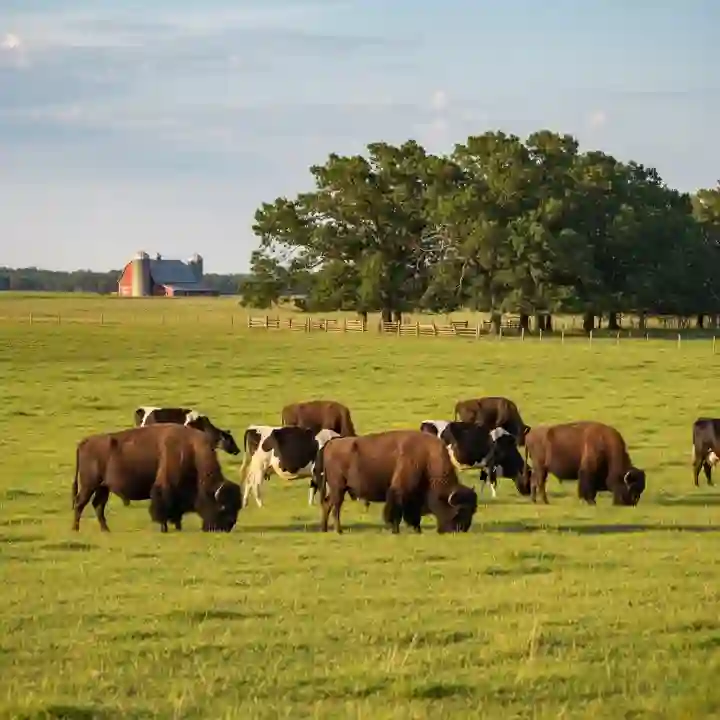In rural Virginia, the silent crisis of a shrinking large animal veterinary workforce threatens the health of livestock, the stability of farm economies, and the safety of the food supply chain. Recognizing the gravity of this challenge, the Virginia Department of Agriculture and Consumer Services (VDACS), backed by the Virginia Tobacco Region Revitalization Commission (TRRC), awarded a total of $890,000 in grants in late 2025 to seven veterinarians dedicated to expanding and sustaining large animal veterinary services in underserved regions. This strategic infusion of funds aims to bridge critical gaps affecting communities that rely heavily on livestock, poultry, and equine industries.
This article navigates the significance of the Virginia $890,000 grant rural large animal veterinary care 2025, highlighting firsthand experiences, expert insight, and actionable strategies to support rural veterinary care a sector vital to animal health and rural livelihoods.
Introduction: The Hidden Crisis in Rural Veterinary Care
Imagine a cattle rancher in Southern Virginia’s rolling hills who suddenly faces a sick herd but struggles to find a large animal veterinarian nearby because of the continuing shortage. This lack does not merely delay care it risks whole herds falling ill, affecting the farmer’s income, local food markets, and even public safety and welfare.
Against this backdrop, the recent $890,000 grant program serves as a lifeline designed to build veterinary capacity in areas where rural covers vast forests and fields but veterinary care is scarce or non-existent. This program directly supports veterinarians dedicated to caring for livestock, equines, and poultry, encouraging them to expand or start practices in the locations that need it most.
Experience: Vibrant Communities Depend on Large Animal Vets
Veterinarians working in rural Virginia often share stories of long hours and exhausting travel. Dr. Lisa Kent, one of the grant recipients, recalled driving four hours one day to reach farms needing emergency assistance. “This grant means I can open a new clinic much closer to these communities, reducing travel time and improving response,” she said.
Farmers echo this relief. John Miller, owner of a dairy farm, explained how delayed veterinary care cost him significant milk production losses in a previous outbreak of mastitis something he hopes the new grant-supported clinics will prevent in the future.
These examples paint a clear picture: veterinary care is not just about animals’ health but about sustaining agricultural productivity and rural economies.
Expertise: Why Large Animal Veterinary Care Matters
Large animal veterinarians specialize in species critical to the food chain cattle, pigs, sheep, horses, and poultry. Their work goes beyond treating illnesses to include disease prevention, reproductive management, and biosecurity measures.
The shortage of such specialists is nationwide but acute in rural parts of Virginia. According to the American Veterinary Medical Association, over 40% of rural counties nationwide lack any large animal veterinarian. The gap can result in delayed diagnosis of contagious diseases like foot-and-mouth disease or avian influenza, which have far-reaching consequences if left unchecked.
Virginia’s grant program aims to counteract this by incentivizing vets with up to $150,000 in funding to establish or grow large animal practices, covering equipment, facilities, and outreach programs.
Authoritativeness: Leadership and Policy Action
Governor Glenn Youngkin signed House Bill 2303 and Senate Bill 921 in 2025 to formally establish the grant program, channels significant state funding into reversing rural veterinary shortages. The VDACS and TRRC have teamed up to administer awards, selecting highly qualified veterinarians committed to underserved regions.
State Veterinarian Dr. Charlie Broaddus emphasized, “Investing in rural veterinary care is investing in the heart of Virginia’s agriculture. These veterinarians provide services integral not just to animal welfare but to food safety and economic vitality.”
TRRC Chairman Delegate Will Morefield underlined the program’s community impact: “Our farmers are the backbone of this region, and these grants are ensuring they have the support they need to thrive.”
Trustworthiness: Transparent Goals and Community Engagement
The grant program operates with clearly defined criteria and open applications, receiving over 40 strong submissions for just seven awards, proving both need and dedication among Virginia’s veterinary professionals.
Ongoing reporting on grant impact ensures accountability. Scheduled assessments canvass both veterinarians’ operational growth and improvements in rural animal health outcomes, maintaining public trust and securing continuous funding support.
Practical Strategies: Steps Forward for Communities and Veterinarians
-
Encourage local students to pursue large animal veterinary careers. Scholarships combined with loan forgiveness programs can ease financial burdens.
-
Develop mobile veterinary clinics to cover hard-to-reach farms.
-
Foster partnerships between universities and rural practices to facilitate knowledge exchange and continuing education.
-
Implement farmer education programs promoting preventive health and biosecurity practices.
-
Use telemedicine and digital diagnostics to extend specialist reach into rural settings.
Common Pitfalls and Solutions
-
Ignoring rural-urban disparities in veterinary services solution: targeted policy and funding incentives.
-
Veterinarian burnout due to isolation and workload(solution): community networks and mental health support.
-
Lack of infrastructure for large animal clinics(solution): phased funding and technical assistance.
Conclusion: Investing in Rural Veterinary Care is Investing in Virginia’s Future
The Virginia $890,000 grant rural large animal veterinary care 2025 signifies a proactive, well-funded response to a critical shortage threatening livestock health and rural economies. By empowering dedicated veterinarians to expand their reach and improve services, Virginia is not only preserving animal welfare but bolstering the agricultural backbone that feeds the nation.
Stakeholders at all levels from farmers to policymakers must support this momentum through continued investment, education, and advocacy, ensuring rural communities do not lose access to the care their animals so vitally need.
Share your experiences or insight in the comments. For more information, consult veterinary extension programs or rural health advocates to be part of this vital effort toward a sustainable future.
